The Child's Play films, ranked

Don Mancini was barely out of his teens, and still enrolled at UCLA, when he conceived Child's Play, the classic 1988 film that introduced audiences across the globe to the foul-mouthed slasher Charles Lee Ray (Brad Dourif), who within the opening minutes would perform a voodoo spell to place his soul inside the plastic bodice of a Good Guys doll that would come to be called Chucky.
Two years before Child's Play hit theaters in November 1988, children's media was at its saturation point with high-energy cartoons produced to entice their audience into purchasing the toys upon which the properties were based. The year 1986 heralded the television arrival of Chucky's likely inspiration, Teddy Ruxpin, who toplined The Adventures of Teddy Ruxpin for a whopping 65 episodes. Three further toy-based cartoons, My Little Pony, Pound Puppies, and Popples, also began airing that year, while shows such as Transformers, G.I. Joe, and Care Bears were entering their sophomore and junior seasons. (The progenitor of the movement, however, was the Hot Wheels television series, which premiered in 1969.)
Mancini, whose father was himself an ad man, wrote Child's Play as a response to these hastily produced cash-ins. As the screenwriter once told Mick Garris on the latter's Post Mortem podcast, via EW, "Because of my exposure to the world of advertising and marketing through my dad, I was very aware from an early age of the cynicism inherent in that world, particularly selling products to children. Madison Avenue refers to children as 'consumer trainees'… I wanted to write a dark satire about how advertising affects children."
Mancini's chiller, directed by Tom Holland (Psycho II, Fright Night), has spawned seven sequels, an unauthorized remake, and a television series, aptly-titled Chucky, that has now entered its second season on the SYFY Channel.
To mark Chucky's latest season of slaughter, we've ranked each film in the Child's Play series, from worst to best.
8. <i>Child's Play</i> (2019)
The Kaslan Corporation has just unveiled their brand new Buddi doll — something of a cross between Alexa and Uber, designed to be your artificially intelligent friend till the end. After a disgruntled factory worker removes the safety settings on one of the Buddis, the sinister toy (voiced by Mark Hamill) makes its way into the apartment of Karen Barclay (Aubrey Plaza) and her son Andy (talented young actor Gabriel Bateman).
Universal churned out this cynical remake without the participation or consent of Don Mancini, who was in the middle of developing his Chucky TV series when this film was rushed through production. An unfortunate series of deals in the late '80s and early '90s left Mancini and producer David Kirschner with the rights to sequelize his original film, while studio UA retained rights to remake Child's Play. "[The studio] came to us and asked us to have this nominal involvement in what they were doing after we had just made two movies [Curse and Cult of Chucky] that had done extremely well," Mancini told EW in 2019. "So, it's hard not to feel a little insulted by that… it might be different if we were finished, but we're hardly finished. We would prefer not to have our brand muddied."
Mancini needn't have worried, considering Child's Play 2019 was forgotten as quickly as it materialized. The film is a mess of tones and ideas, lugubrious splatter-movie violence mixed with a confused desire to appeal to the Stranger Things demographic. Despite all that happens over the course of its slight 90 minute running time, Child's Play never takes off. "Interesting story threads… barely have time to materialize before they get bumped out of the way to make room for the big climax… The final act, which turns a toy store on release night into an apocalyptic war zone, is very fun but throws away some of its best bits… rather than giving them time to shine," wrote Christian Holub in his review for EW.
By making Chucky just another AI-gone-rogue, the movie also takes away any personality the little guy might have. At the end, when Andy plunges a knife into Chucky's chest and sparks burst forth, it seems considerably lame stacked up next to the many sequels in which Chucky was bloodily torn asunder, his rubbery doll body giving way to human innards. Holub posited in his review "that a white guy using voodoo magic was just a bit too much cultural appropriation for the current zeitgeist," but is it any less problematic for Chucky's new origin story to be set off by a suicidal Vietnamese factory worker? Child's Play is both messy and unnecessary, proving that even at their most inane, the Mancini installments at least know what they're doing.
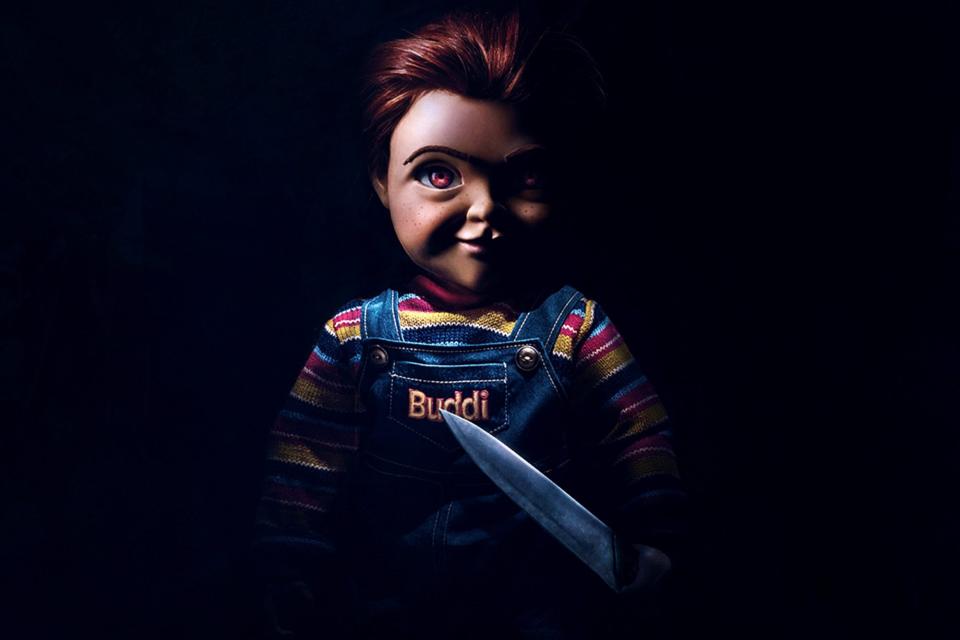
7. <i>Child's Play 3</i> (1991)
Eight years after the events in Child's Play 2, Chucky follows Andy Barclay (Justin Whalin) to the military academy that the troubled youth has been shuffled off to, guaranteeing yet more pint-sized carnage for this third installment in "which Chucky the plastic slasher proves that his novelty value has long worn off," as Owen Gleiberman said in his F-grade review for EW.
While an "F" might seem a bit harsh, it isn't terribly far off the mark. Child's Play 3 was rushed out just nine months after the release of the second film, which premiered in April 1991. Don Mancini has admitted to this being his least favorite film in the franchise, finding that having to turn out a fresh story so soon after Child's Play 2 left him largely out of ideas. The obvious approach (perhaps too obvious for Mancini during the writing process) would be to follow Andy and Kyle (Christine Elise) on a new adventure after defeating Chucky at the end of the last film. Flashing forward several years, and replacing Vincent with the far-less charismatic Whalin, makes Child's Play 3 feel like a cheap rip-off of a Chucky movie rather than an authorized sequel.
The military school setting also robs the movie of any sense of isolation or vulnerability, something the previous two films thrived upon. When the action moves to a carnival in the last 20 minutes, the movie does come alive and delivers a denouement that is on par with the first two movies. Much of the running time, though, is spent with Chucky stalking his victims around a busy school, loaded with firearms and people that know how to use them, which is just not very spooky.
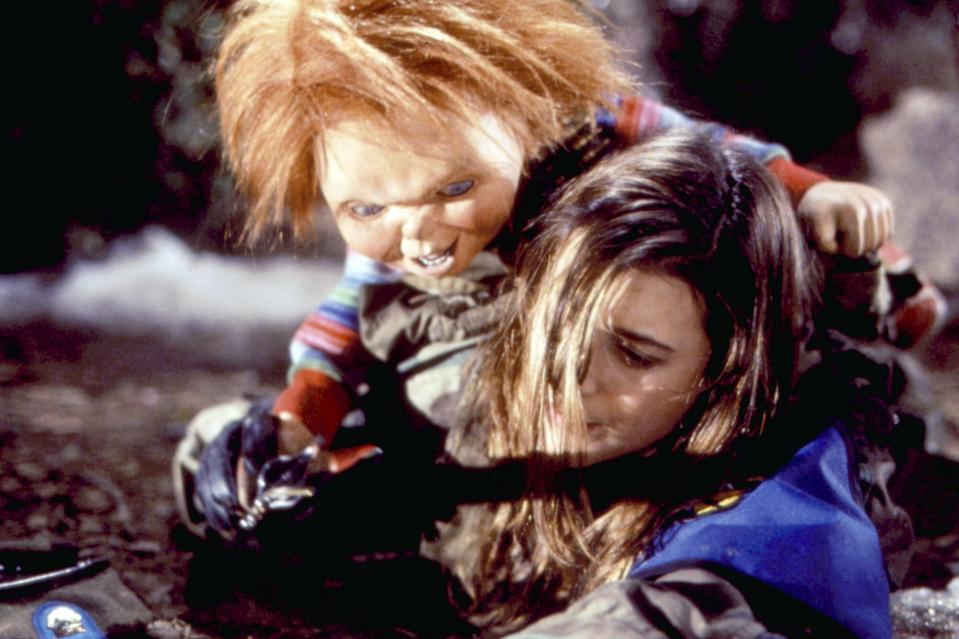
6. <i>Cult of Chucky</i> (2017)
Confined in a hospital for the criminally insane after Chucky's mansion rampage in the previous film, for which she took the blame, Nica (Fiona Dourif, daughter of Brad) has come to believe that she did in fact slay her relatives. Just in time to put her fears at ease, Chucky infiltrates the hospital and proceeds to pick off Nica's doctors and fellow patients one-by-one.
Don Mancini's third spin behind the camera is a somewhat fractured production that seems to have difficulty deciding what it is, and where to go, after the previous installment. Mancini told fellow horror directors Adam Green and Joe Lynch on their Movie Crypt podcast, via EW, "Nightmare on Elm Sreet 3 was an influence [on Cult of Chucky] but so was Inception, honestly. These are movies where, deliberately — and we had not done this before with a Chucky movie — you question reality." Unfortunately, none of those influences (besides the Nightmare 3-inspired setting) come through with any great clarity.
Amidst its drawbacks, Cult of Chucky is still a fun sequel that does a better-than-expected job of tying the disparate endings of the previous installment into the franchise's larger mythos. (The TV series has further repaired this issue, weaving together the various characters and stories with finesse.) Ultimately, though, Cult can't help but feel like a middle installment in a larger story, a movie that is nearly all set up before a few good twists in the final passage tee us up for the forthcoming series. Perhaps this was a necessary stone in the walkway to Mancini's fully-realized vision of his series, but we could have hoped for something a bit riskier, a bit edgier, and a bit more consistent.
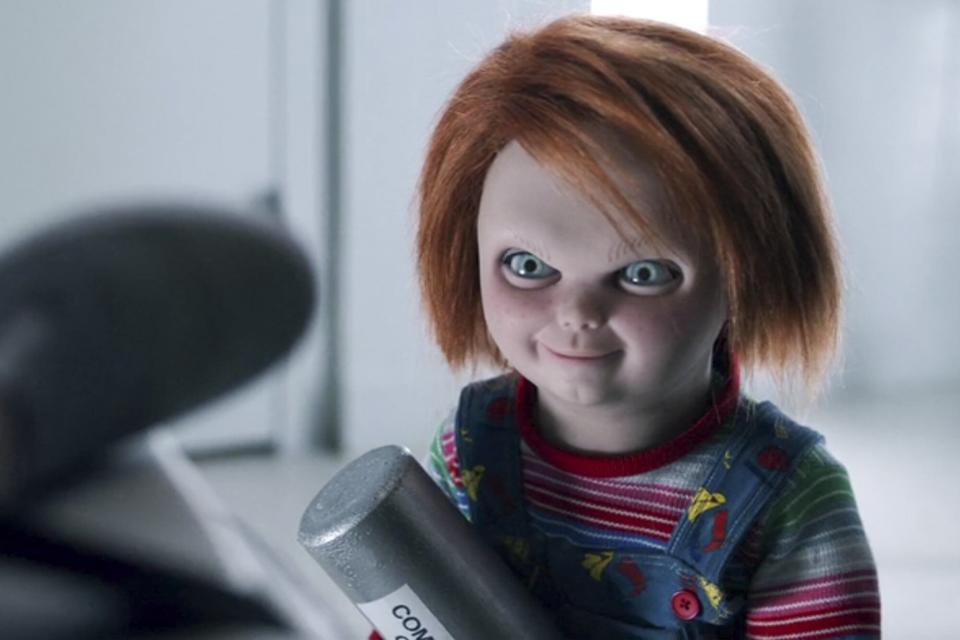
5. <i>Curse of Chucky</i> (2013)
Nica Pierce (Dourif) has been confined to a wheelchair since her youth, the result of an unspecified injury while she was still in her mother's womb. When Nica's extended family come to stay at her isolated mansion in the wake of a family tragedy, a mysterious doll turns up in an unmarked box and begins rampaging around the country home with a massive butcher's knife, felling any member of Nica's brood that gets in their way.
Mancini's reset for his series, nearly a decade after fans decried the fully comedic tone of Seed of Chucky, is a tremendously satisfying twist on the Child's Play formula. Curse returns Chucky to his original design from the first few movies and heavily pares back the killer's schticky quips. The location is utilized to its fullest extent; the cavernous hallways and darkened alcoves have a rambling spaciousness that ably aids the tension once the body count begins to rise.
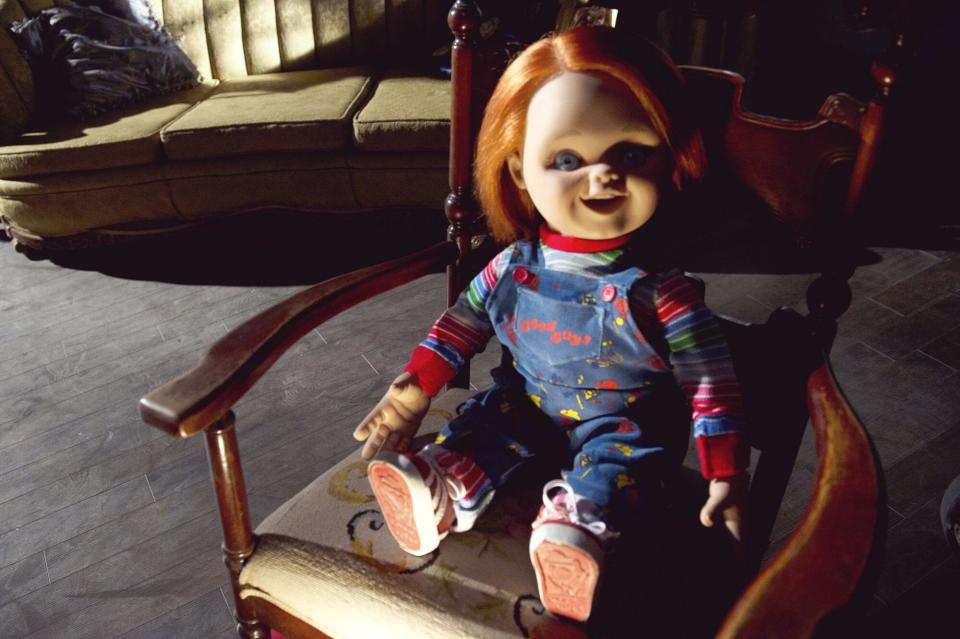
4. <i>Seed of Chucky</i> (2004)
Before diving into Seed of Chucky, it might be wise to let mastermind Don Mancini clarify the film's casting, as he did for EW in 2013. "In Seed of Chucky, Jennifer [Tilly] plays two roles. She plays Tiffany, who at that point is trapped in the soul of a doll, and she also plays "Jennifer Tilly" and "Jennifer Tilly" is basically the lookalike of the character of Tiffany. And that's why Tiffany the doll is obsessed with transferring her soul into Jennifer Tilly's body… So, Jennifer Tilly basically becomes Tiffany. She has her Jennifer Tilly body but with the soul of Tiffany inside."
In this fifth installment, Chucky and Tiffany's progeny, Glen (Lord of the Rings' Billy Boyd), escapes their life as a ventriloquist's dummy in Glasgow and travels to Hollywood, where a film starring the deeply neurotic Jennifer Tilly (playing herself) is being made about Chucky and Tiffany's most recent rampage. Confused about both their gender and their purpose in life, Glen resurrects their parents with the hope of discovering more about themselves. Rather than spending time with their long-lost child, Chucky and Tiffany insteady busy themselves with transferring their souls into the human vessels of Tilly and the rapper Redman (also playing himself), so that they may leave behind their doll forms for good.
Seed of Chucky lacks the dynamic pacing of its predecessor, Bride of Chucky. Gone, too, are the baroque sets and atmospheric lighting of previous installments, replaced instead with retina-searing studio interiors. Chucky and Tiffany also cease to be scary in any capacity whatsoever in Don Mancini's directorial debut, which may be the most controversial chapter in the Child's Play franchise.
In spite of its tonal inconsistencies, and Mancini's stumbles as a first-time filmmaker, there is a lot to admire about Seed of Chucky. In its depiction of Glen's gender confusion, Mancini's film is in fact quite subversive and admirably direct. Glen is never treated as the butt of the movie's jokes, and similarly, Chucky's bafflement in how to handle his child's burgeoning identity isn't simply used as a plot device, but actually comes to deepen both characters by the end. There have been earnest dramas made during the present decade that don't handle these issues as confidently or respectfully as Mancini does in Seed of Chucky.
The sections satirizing Hollywood filmmaking are the film's most successful; one only wishes it had gone farther, so game is the entire cast. Tilly is a preeminent comedic actor who "deserves a medal for sportsmanship. By far, the most shocking carnage [in the film] is Tilly carving up her persona," wrote Scott Brown in his review for EW. Cult-director John Waters is equally-adept in a small role as Celebrities Revealed tabloid journalist Pete Peters. His presence feels like a perfect touch here, as so much of this franchise has felt inflected by the director's work.
Waters darts through his scenes with the skill of a veteran performer, tossing out pallid questions at Tilly ("Jennifer, how old are you really? Give us the exact date!") and basking in the added exposure Chucky and Tiffany's fresh homicidal rampage might have on his photographic career. Seed of Chucky isn't a perfect sequel, but it maintains the strength of its convictions throughout and provides a handful of chuckles along the way.
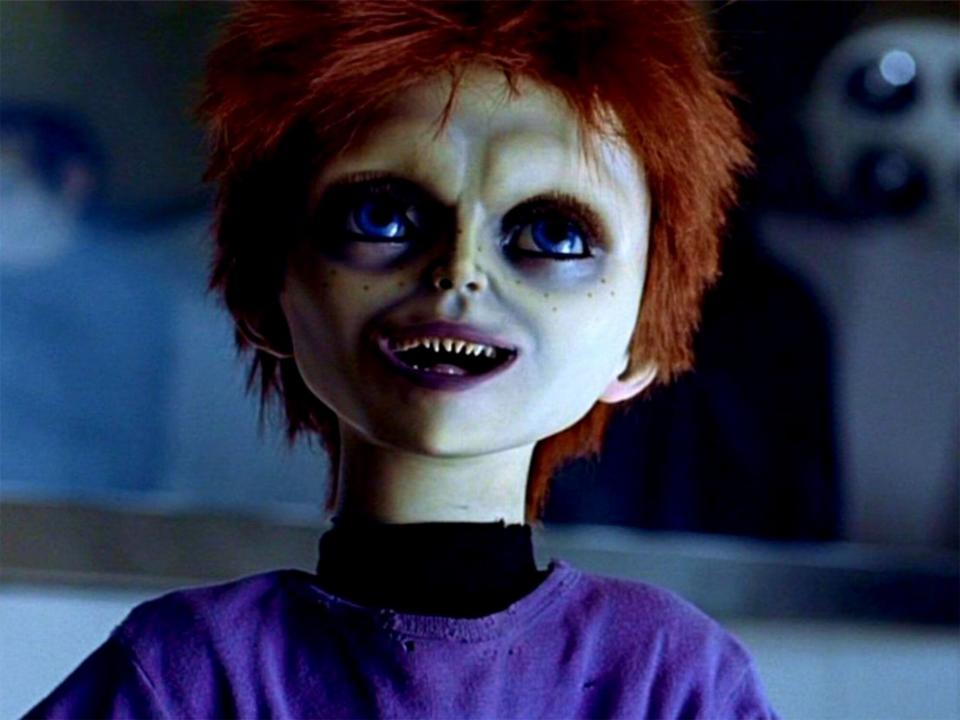
3. <i>Child's Play 2</i> (1990)
Two years after his first encounter with Chucky, Andy is living in foster care after his mother was institutionalized for backing up her son's killer-doll claims in court. When the Play Pals Corporation begins manufacturing another round of Good Guys dolls, Chucky is reincarnated and follows Andy to his new home, determined to wipe out his adoptive parents (genre-veterans Jenny Agutter and Gerrit Graham) as well as his feisty foster sister, Kyle (Christine Elise).
John Lafia's sequel takes all of the best parts of the first film and assembles them into a superbly-realized horror-adventure movie, in many ways a model follow-up. It's essentially a loose remake of the original, with some twists and turns and a few surprises along the way. The sets here are astonishing, built to resemble dolls' houses and the interiors of toy stores, and they give the entire movie the feeling of a funhouse on psychedelics. A penultimate sequence set in the Good Guys manufacturing facility actually bests the first movie's finale, and it allows Andy to assume a more proactive role in his own survival than he did in the previous installment. Child's Play 2 is also the prime balance between keeping Chucky a scary villain and letting him have funny one-liners, whereas the later sequels would slip further and further into the latter camp.
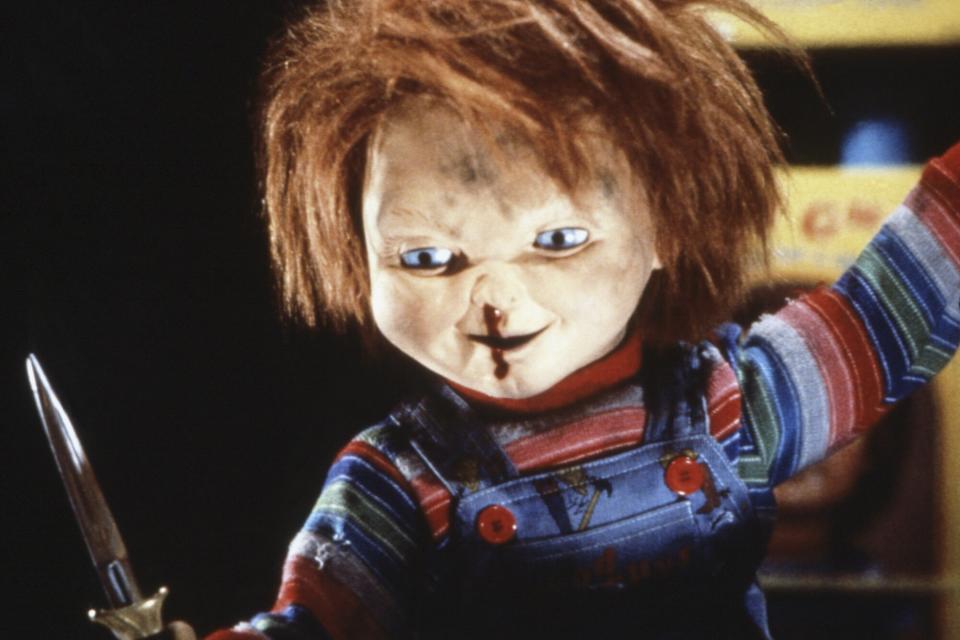
2. <i>Child's Play</i> (1988)
After he is mortally wounded whilst being pursued through a toy store by Detective Mike Norris (Chris Sarandon), serial-killer Charles Lee Ray (Brad Dourif) performs a voodoo spell that transfers his soul into a Good Guys doll. Across town, widow Karen Barclay's (Catherine Hicks) young son Andy (Alex Vincent) desperately wants one of those very dolls for his birthday. Karen is thrilled when she finds one for a slashed-rate from a street vendor outside of her work, but what the young mother and her son don't know is that they've just opened their home to a vicious murderer.
Tom Holland's original film, for which screenwriter Don Mancini deserves equal if not greater credit, is a nearly-flawless exercise in sustained suspense which EW's Bruce Forer called "a surprisingly polished guilty pleasure." Child's Play feels pointed and a bit angry about the feverish state of consumerism then and now, but thankfully it never becomes pious in its messaging. At the end of the day, it's a movie that just wants to have a good time. It's a propellant, witty thriller that has not a single trace of fat on its lean 87-minute running time.
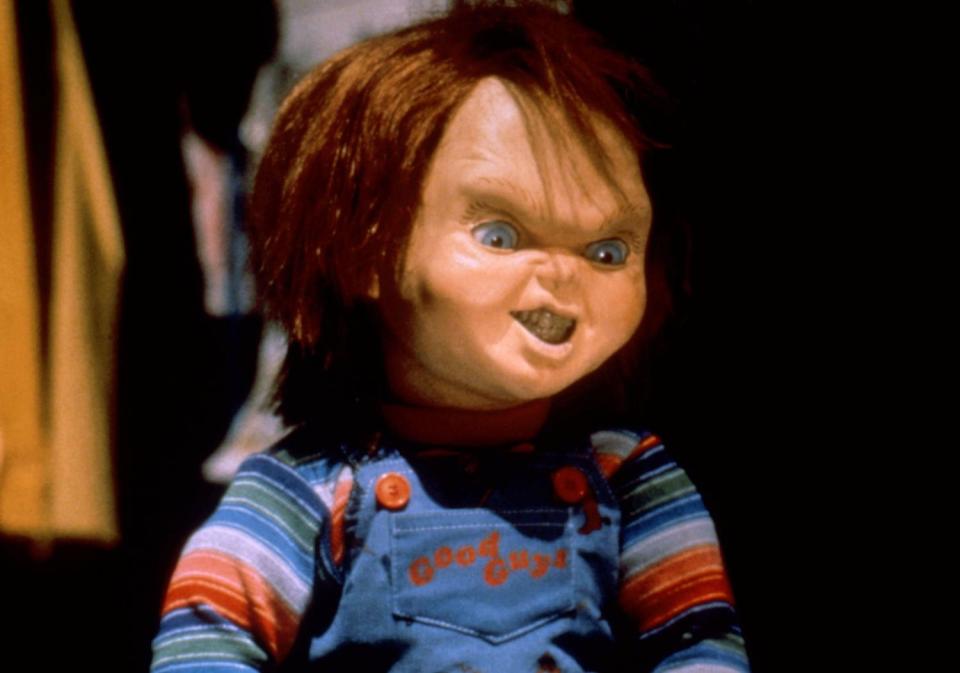
1. <i>Bride of Chucky</i> (1998)
Tiffany (Tilly), the ex-girlfriend of serial killer Charles Lee Ray (Dourif), steals the doll in which her beau's soul is trapped and proceeds to resurrect him. Their honeymoon is short lived, however, and after a heated confrontation Chucky electrocutes Tiffany, trapping her soul in a wedding-dress-clad doll. In order to obtain an amulet that will restore them to human form, the two killers hitch a ride across the country with teenage runaways Jesse (Nick Stabile) and Jade (Katherine Heigl), carving up honeymooners and law enforcement along the way.
Tiffany Valentine, a voodoo-practicing, bustier-clad woman living in a trailer park obsessing over her deceased serial killer ex, whilst desperately cajoling her reluctant new lover Damien (Alexis Arquette) to begin a hobby of mass murder, has seemingly sauntered directly out of a John Waters film. ("You never really… killed anybody, did you? Did you? You pathetic worm!" Tiffany accuses Damien, in a hissy-fit worthy of Mink Stole.) Mancini has flirted with a Waters-influence throughout the series, but here he goes all-in and proves himself as an admirable successor to the schlockmeister's tasteless artistry.
Along with director Ronny Yu, Mancini deftly straddles the line between jet-black comedy and taut suspense in what is not only the best film in the Child's Play franchise, but a seminal late-'90s horror installment all on its own (even if our critic didn't see it at the time). Few other horror-comedies have managed to be both this funny and this horrific; Bride of Chucky has all of the imaginative grue you'd expect from the franchise, but it also contains a handful of properly suspenseful sequences in addition to bewitching cinematography courtesy of Peter Pau. Yu and Mancini bring out the best in one another, helping to reign in each other's excesses; their most exceptional trick is the execution of effective emotional arcs for both Chucky and Tiffany, in their doll forms no less, which the creators wisely play without irony.
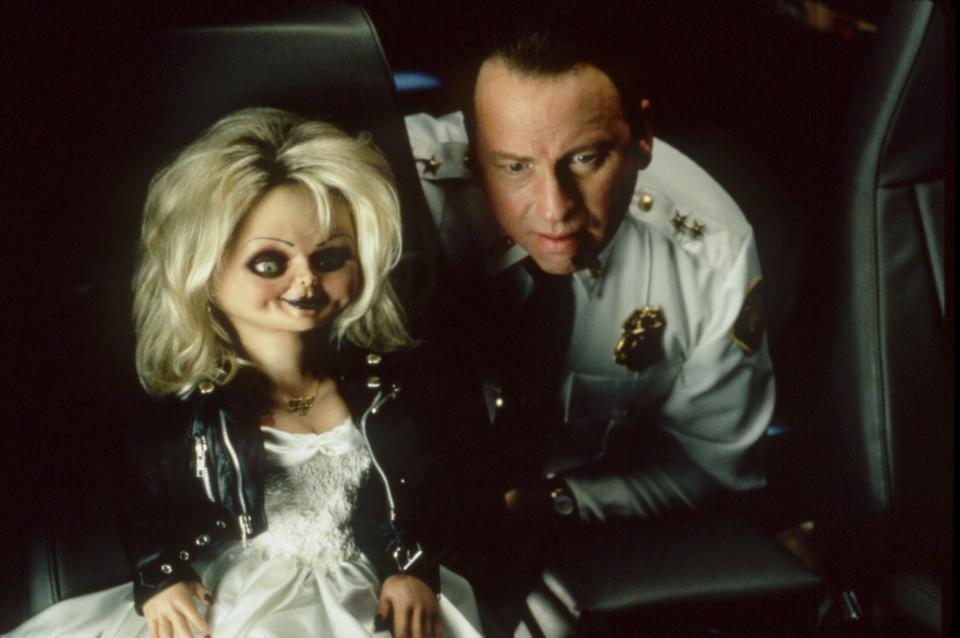
Related content:


